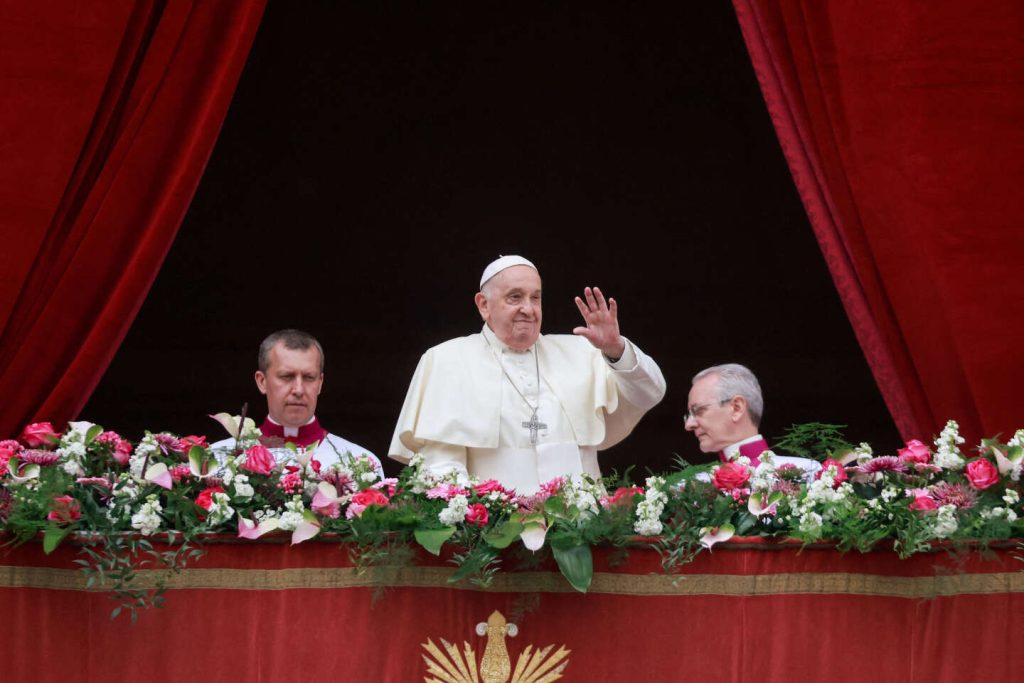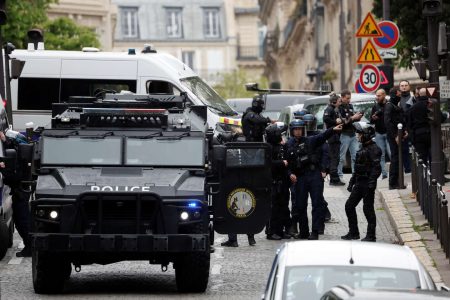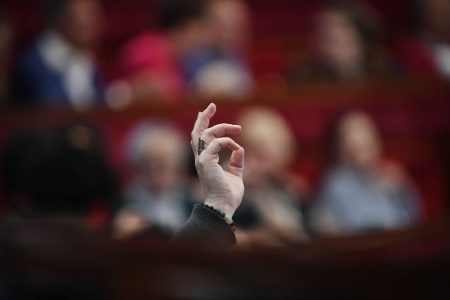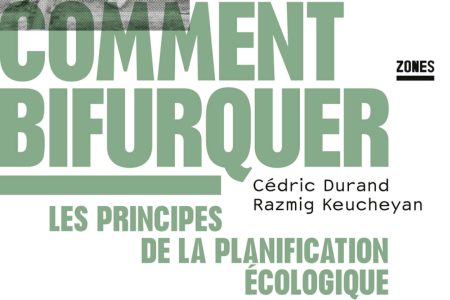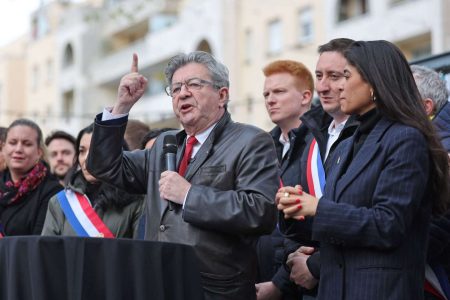Pope Francis greeted a crowd of at least 60,000 people gathered in St. Peter’s Square in Rome on March 31, 2024, as he delivered his traditional Easter message “urbi et orbi”. Despite concerns about his health following a last-minute cancellation of his participation in the Way of the Cross ceremony on Good Friday, the 87-year-old Pontiff appeared for the Easter celebrations, both at mass and for his blessing from the window of St. Peter’s Basilica.
During the Easter Sunday celebrations, Pope Francis, who appeared tired and leaned on his cane, displayed a show of strength by changing seats during the ceremony. This was likely in response to rumors of his resignation or death circulating among his detractors. The Pope had also celebrated Easter mass the previous day and made rounds in the basilica to show that he was still present, reassuring the faithful who had gathered to see him.
Amidst cheers from the crowd, Pope Francis completed his traditional papal tour in the popemobile, greeting the faithful and smiling at them. He then appeared in the loggia of St. Peter’s Basilica and delivered his message for peace, lamenting the heavy burdens that prevent humanity from achieving its hopes, including war, humanitarian crises, human rights violations, and human trafficking. He called for a general exchange of prisoners between Russia and Ukraine, advocated for humanitarian aid access in Gaza, and urged for the release of hostages held since the 2023 attack by Hamas in Israel.
Pope Francis’s message at Easter also included an urgent plea for an immediate ceasefire in Gaza, highlighting the need for compassion and reconciliation in areas of conflict and suffering. His call for peace and humanitarian assistance resonated with the crowd, who listened attentively as he addressed the pressing issues facing the world today. The Pope’s presence and message conveyed a sense of hope and solidarity to those gathered in St. Peter’s Square, reminding them of the importance of faith and compassion in times of uncertainty.
The Pope’s Easter Sunday address was a powerful reminder of the values of peace, justice, and mercy that are central to the teachings of the Catholic Church. His words resonated with the faithful gathered in St. Peter’s Square, as he called for unity and compassion in the face of adversity. Through his actions and his message, Pope Francis exemplified the spirit of Easter and the importance of faith in bringing about positive change in the world. His presence and his words served as a beacon of hope for those in need and a reminder of the power of faith and love to overcome all obstacles.









